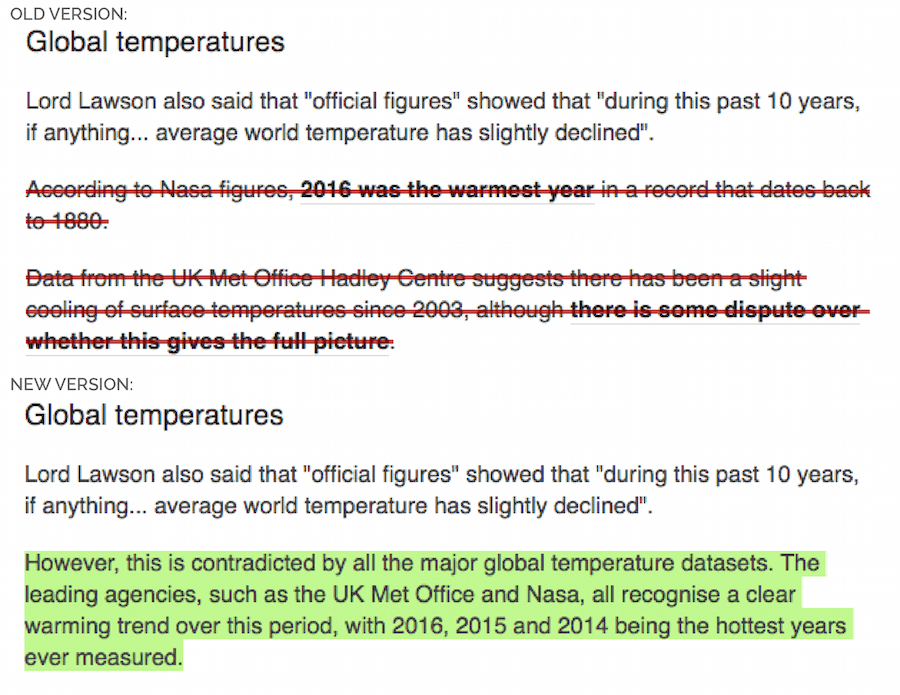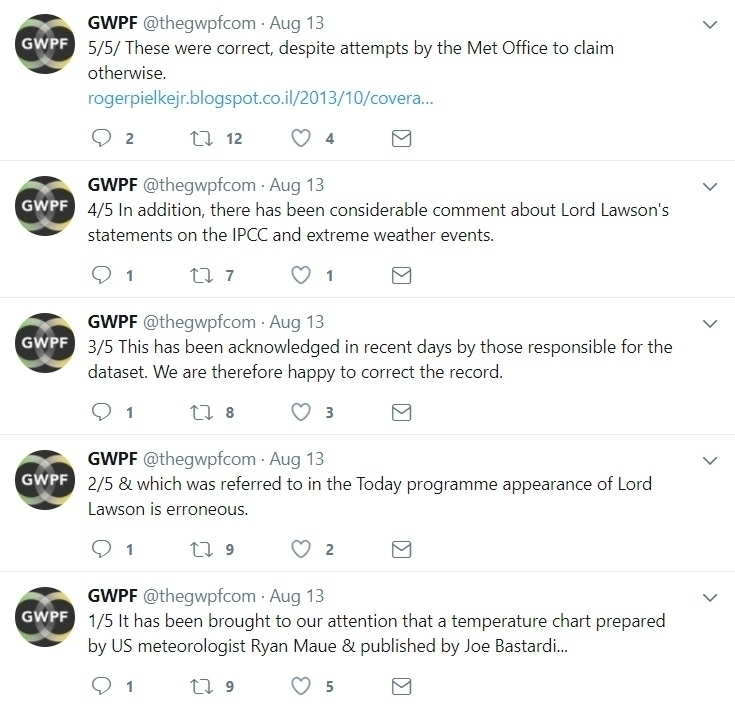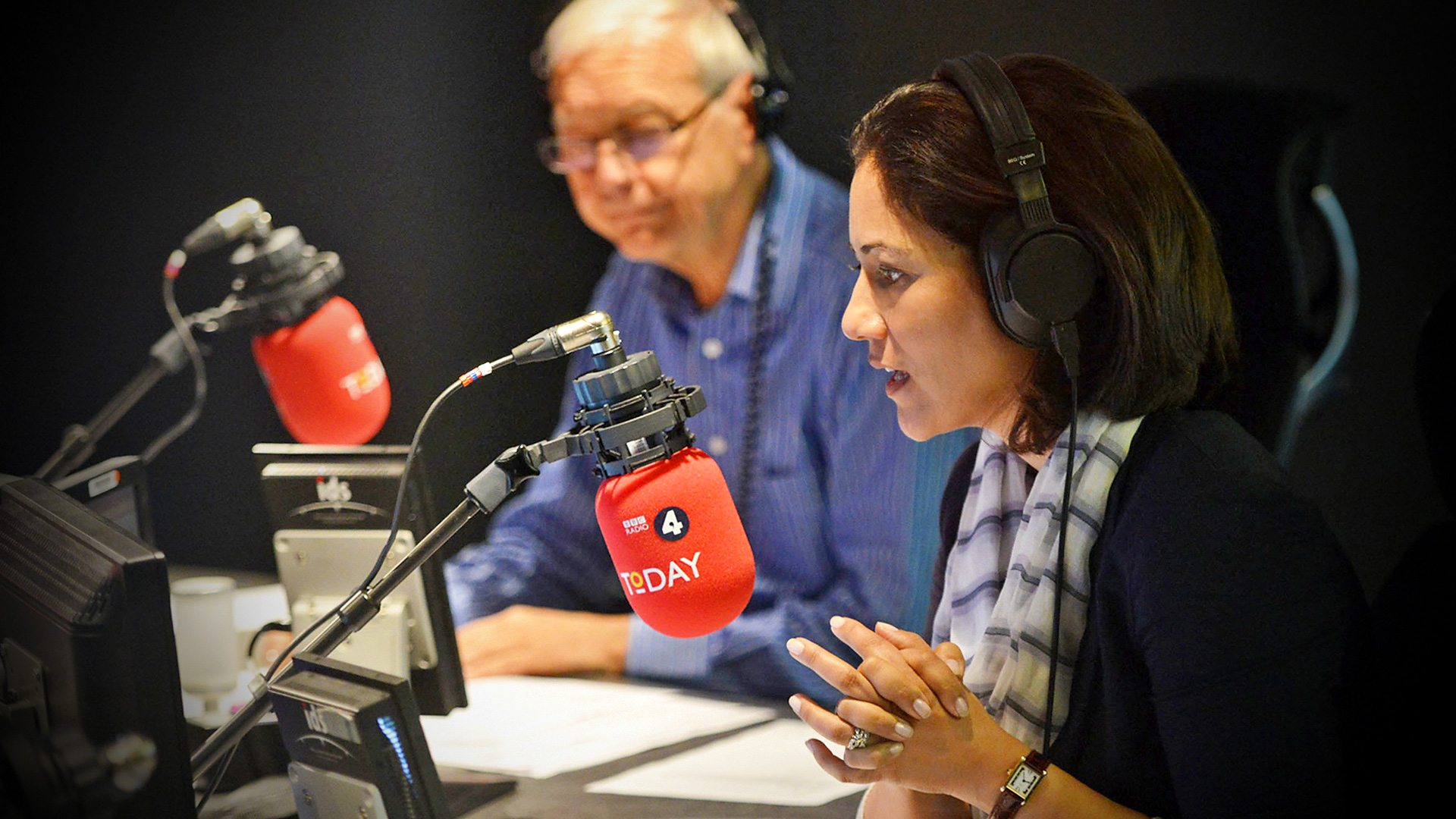
On Thursday August 10, BBC Radio 4’s “Today” broadcasted an interview in which Nigel Lawson commented on Al Gore’s new film sequel to “An Inconvenient Truth”—and on Gore’s own interview on “Today” about that film. We asked scientists to evaluate claims Lord Lawson made about aspects of climate science during the interview.
Lord Lawson’s first claim was related to extreme weather events.
[Gore] said that there had been a growing increase, which had been continuing, in the extreme weather events. There hasn’t been. All the experts say there haven’t been. The IPCC, the Intergovernmental Panel on Climate Change, which is sort of the voice of the consensus, concedes that there has been no increase in extreme weather events. Extreme weather events have always happened. They come and go. And some kinds of extreme weather events of a particular time increase, whereas others, like tropical storms, diminish…
Lord Lawson is incorrect about trends in weather extremes and the contents of the IPCC reports. As Los Alamos National Laboratory scientist Jeremy Fyke explained, “Lord Lawson’s blanket claim that the frequency of extreme events has not increased is wrong. Due to overall warming, for example, it is very clear in observations that the frequency and severity of extreme heat events is increasing, and that this increase would not occur in the absence of anthropogenic forcing.”
Andreas Prein of the National Center for Atmospheric Research said, “This is a false statement since the IPCC AR5 even states in its Summary for Policymakers that ‘Human influence has been detected … in changes in some climate extremes’. In this report it is also stated that: ‘It is now very likely that human influence has contributed to observed global scale changes in the frequency and intensity of daily temperature extremes since the mid-20th century, and likely that human influence has more than doubled the probability of occurrence of heat waves in some locations’ and ‘It is virtually certain that there will be more frequent hot and fewer cold temperature extremes over most land areas on daily and seasonal timescales as global mean temperatures increase. It is very likely that heat waves will occur with a higher frequency and duration.’”
“Since the publication of the IPCC AR5,” Prein continued, “many studies were published on the detection and attribution of man made impacts on climate extremes. An example which shows the human influence on precipitation extremes is Fischer and Knutti (2015).”
- [For more, read a full review of this claim here: Some extreme weather events are clearly becoming more common, in contrast to Lord Lawson’s claim.]
Lord Lawson then turned his attention to the global temperature record.
And as for the temperature itself, it is striking, [Gore] made his previous film 10 years ago and—according, again, to the official figures—during this past 10 years, if anything, mean global temperature, average world temperature, has slightly declined.
This is false. Global temperature dataset clearly show an increase over the last 10 years—as well as over longer periods, which are less susceptible to short-term natural variability. Ken Caldeira of the Carnegie Institution of Science notes, “Multiple independent analyses have concluded that years 2014, 2015 and 2016 were the hottest annual global mean temperatures ever observed by modern humans. It would be mathematically impossible for the hottest years to appear at the end of 10-years of declining temperature. It is obvious and clearly demonstrable that this statement made by Lord Lawson is false.”
UPDATE (18 Aug 2017): The Global Warming Policy Forum, of which Lord Lawson is the chairman, tweeted that Lord Lawson’s statement was based on a chart that is “erroneous”. Read more
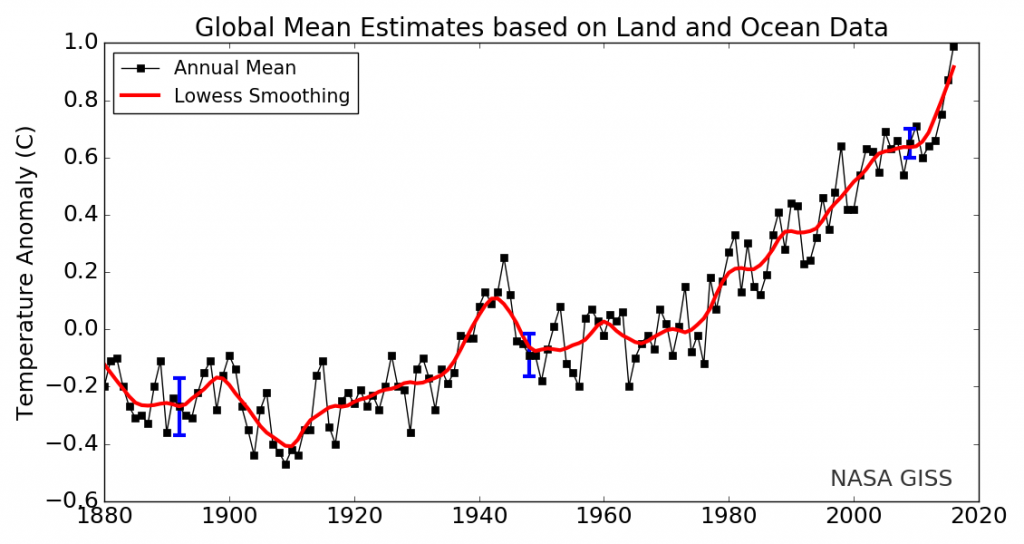
Source: NASA
- [Read a full review of this claim here: Lord Lawson falsely claims that global temperatures have declined over last decade.]
The BBC later justified airing these false statements in the name of balance, saying, “The BBC’s role is to hear different views so listeners are informed about all sides of debate and we are required to ensure controversial subjects are treated with due impartiality.”
The BBC article providing this statement acknowledged that 2016 was the warmest year in NASA’s global temperature dataset, but then claimed, “Data from the UK Met Office Hadley Centre suggests there has been a slight cooling of surface temperatures since 2003, although there is some dispute over whether this gives the full picture.”
This, too, contradicts the evidence, scientists explained. University of California, Berkeley researcher Zeke Hausfather told Climate Feedback, “There is no global temperature dataset that shows cooling of any sort since 2003. The BBC was citing an article from 2008, which was nearly 9 years ago, and 2003-2008 is far too short a period to conclude anything about climate changes.”
UPDATE (11 Aug 2017): The BBC article has been edited, removing the inaccurate statement highlighted here. Read more
UPDATE (24 Oct 2017): After an internal review, the BBC has determined that the “Today” program violated editorial guidelines when it aired Lord Lawson’s claims without correction, and has apologized for the decision.
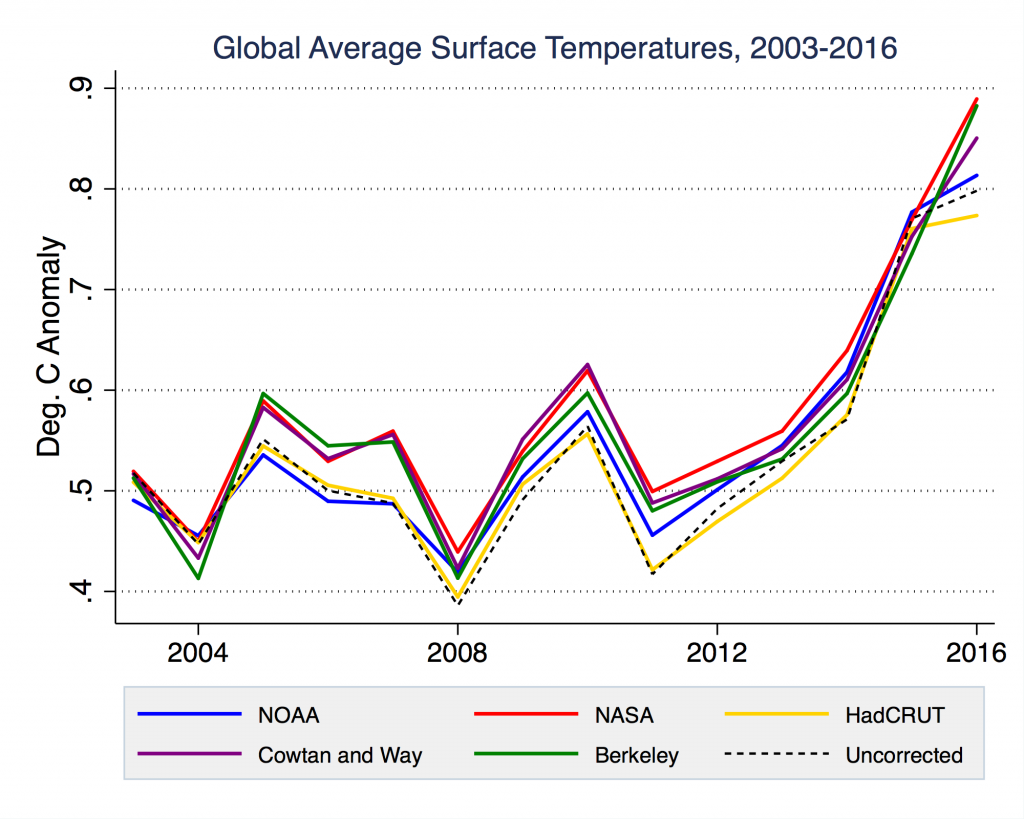
BBC editors should be reminded that publishing false information does not add balance to accurate (or even inaccurate) information. In a BBC News interview two months ago, for example, physicist Stephen Hawking inaccurately compared future global warming on Earth to the extreme, runaway greenhouse conditions on Venus—which was similarly misleading, even if it exaggerated the risk instead of dismissing it.
When it comes to scientific issues, the BBC should interview individuals with actual expertise on the topics they wish to cover—instead of celebrities or politicians—if they want to inform their audience about reality and follow standards of journalistic ethics.
UPDATE (11 Aug 2017):
Here is a screenshot of the statement modified from the original version of the BBC article:
UPDATE (18 Aug 2017):
Here is a screenshot of the statement posted on the Global Warming Policy Forum’s Twitter account:

